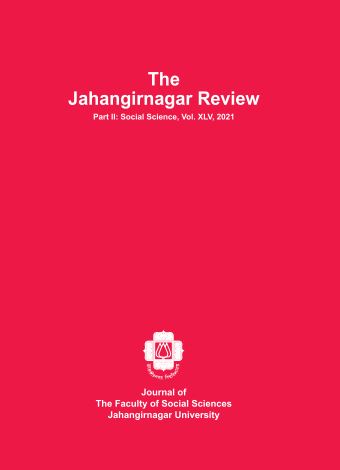Desperate Time Calls for Desperate Measures: Exploring the Coping Mechanisms of the Rohingyas in Camps
Main Article Content
Abstract
The Rohingyas have escaped one unbearable situation only to end up in other where they barely ‘staying alive’, and caged up in limited space, with minimal access to social and financial capitals. This prevents them from enjoying a desired ‘livelihood’ mode since they have hardly any control over any of their livelihood elements. Although ‘entitlement’ and ‘enfranchisement’ are preconditions for a livelihood and several International Human Rights covenants, refugee conventions and protocols confirm certain rights and entitlements of the Rohingyas; however, they are unable to exercise those rights. This study explores some of the prevalent challenges of economic activities of the Rohingyas and share several coping strategies regarding their livelihood mechanisms in the camps. The study also recommends certain strategies which can serve them better and simultaneously discourage them to partake in any illegal activities. The findings might be helpful for the Rohingya communities, governments, humanitarian, and development agencies and those in the international community, actively working to alleviate the Rohingya refugee crisis. The outcome of the article is result of a small-scale study carried out in Kutupalong camp only in Teknaf Upazila.

